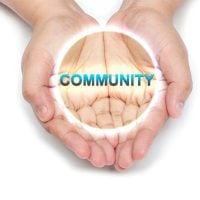Deadline: 7-Apr-22
The European Commission has announced the Capacity Building Project to support sports activities and policies in Third countries not associated to the Programme as a vehicle to promote values as well as an educational tool to promote the personal and social development of individuals and build more cohesive communities.
Capacity-building projects are international cooperation projects based on multilateral partnerships between organizations active in the field of sport in Program and Third countries not associated to the Program.
Objectives
The action will aim at:
- raising the capacity of grassroots sport organizations;
- encouraging the practice of sport and physical activity in Third countries not associated to the Program;
- promoting social inclusion through sport;
- promoting positive values through sport (such as fair play, tolerance, team spirit);
- fostering cooperation across different regions of the world through joint initiatives.
Thematic Areas
Proposals should focus on certain thematic areas defined at programming stage. Examples of particularly relevant areas are:
- promotion of common values, non-discrimination and gender equality through sport;
- development of skills (though sport) needed to improve the social involvement of disadvantaged groups (eg independence, leadership etc.).
- integration of migrants;
- post-conflict reconciliation
Funding Information
- The EU grant per project will vary from a minimum of 100,000 € and a maximum of 200,000 €.
- Capacity-building Projects can last one, two or three years. The duration must be chosen at application stage, based on the objective of the project and on the type of activities foreseen over time.
Activities
The activities proposed must be directly linked to the general and specific objectives of the action, ie they must correspond to one or more of the thematic areas and they must be detailed in a project description covering the entire implementation period. Finally, in the context of this international worldwide action, project activities must focus on building and strengthening the capacities of sport organizations and principally in the countries not associated to the Program from Region 1 covered by the action.
Funded projects will be able to integrate a wide range of cooperation, exchange, communication and other activities including for example:
- Creating and deve loping networks between organizations / countries / regions;
- Developing and implementing exchange of best practices / ideas;
- Implementing common sport activities and educational side events;
- Launching, testing, sharing and implementation of new forms of non-formal learning methods, tools, practices and materials through practical training and mobility of sport staff;
- Raising awareness on issues of discrimination of disadvantaged groups in sport;
- Supporting the building of an engaged and active civil society.
Eligibility Criteria
- Any public or private organization, with its affiliated entity (if any), active in the field of sport, established in an EU Member State or third country associated to the Program or a third country not associated to the Program which is eligible for participation in this action.
- The organization applies on behalf of all participating organizations involved in the project and must be legally established and located in an EU Member State or third country associated to the Program or a third country not associated to the Program which is eligible for participation in this action.
- Any organization, public or private, working with or for young people outside formal settings established in an EU Member State or third country associated to the Program or a third country not associated to the Program from Region.
- Such organizations can, for example, be:
- a public body in charge of sport at local, regional or national level;
- a sport organization at local, regional, national, European or international level;
- a National Olympic Committee or National Sport confederation;
- an organization representing the ‘sport for all’ movement;
- an organization active in the field of physical activity promotion;
- an organization representing the active leisure sector;
- Public or private companies (small, medium or large enterprise (including social enterprises) may be included. Therefore, whereas this action is primarily targeting associations, NGOs and more generally non-for-profit organizations, for-profit organizations can be involved if a clear added value is demonstrated for the project. However, in a capacity building objective, coordination tasks must be limited to non-for-profit organizations.
- Number and profile of participating organizations
- Capacity -building projects are transnational and involve at least 4 organizations from minimum 3 countries: At least 1 organization from 2 different EU Member States and third countries associated to the Program and at least 2 organizations from at least 1 eligible third country not associated to the Program from Region 1.
- The number of organisations from EU Member States and third countries associated to the Programme may not be higher than the number of organisations from Third countries not associated to the Programme.
For more information, visit https://erasmus-plus.ec.europa.eu/es/node/2672









































